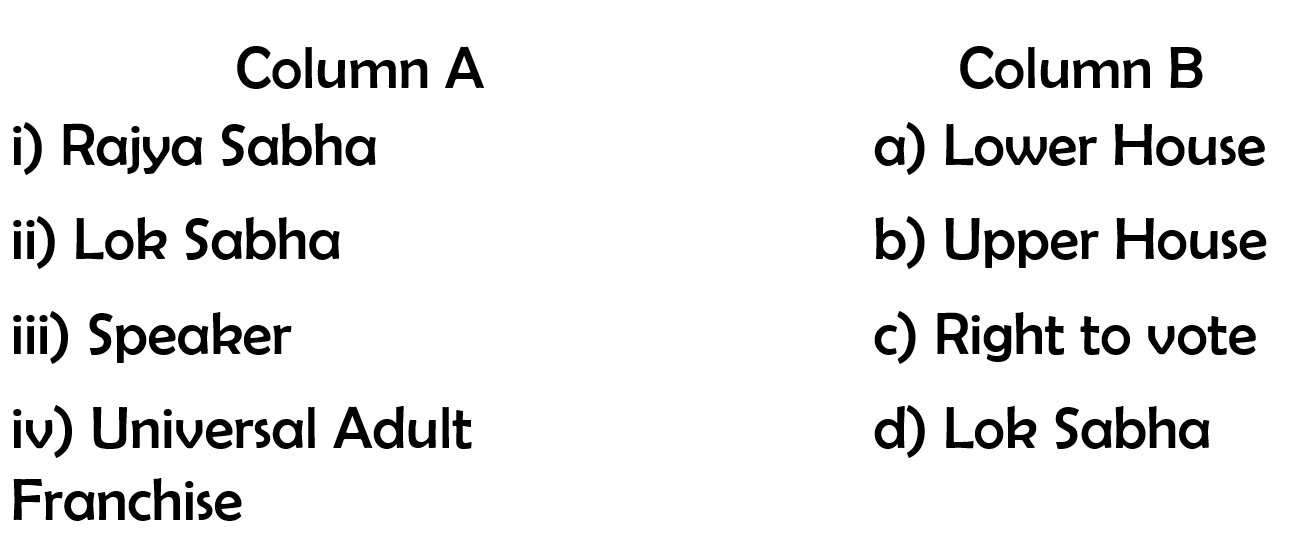Chapter 3 - Why do we need a Parliament? Extra Questions
Multiple Choice Questions1. EVMs were used throughout the country for the first time in the general elections held in _______________.
a) 1962
b) 1977
c) 2004
d) 1999
Answer: c) 2004
2. The ________ hour is an important mechanism through which MPs can elicit information about the working of the government.
a) Both Question and Zero
b) Question
c) Zero
d) None of the above
Answer: b) Question
3. The members of Lok sabha are known as ___________.
a) Monarch
b) Executives
c) MP
d) MLA
Answer: c) MP
4. Which house dissolves after 5 years?
a) Parliament
b) Rajya Sabha
c) Both Lok Sabha and Rajya Sabha
d) Lok Sabha
Answer: d) Lok Sabha
5. To whom are the questions asked in the Lok Sabha addressed to?
a) Prime Minister
b) Speaker
c) President
d) Vice President
Answer: b) Speaker
Match the following:


Fill in the blanks:
6. The Parliament in India consists of the _________________, the Rajya Sabha and the ___________________.
7. The Prime Minister of India is the ________________ of the ruling party in the Lok Sabha.
8. Sixty years ago, only four per cent of MPs were women and today it is just above _____________ per cent.
9. The South Block of the Central Secretariat houses the Prime Minister’s office, the Ministry of ___________ and the Ministry of _______________.
Answer:
6. The Parliament in India consists of the President, the Rajya Sabha and the Lok Sabha.
7. The Prime Minister of India is the leader of the ruling party in the Lok Sabha.
8. Sixty years ago, only four per cent of MPs were women and today it is just above nine per cent.
9. The South Block of the Central Secretariat houses the Prime Minister’s office, the Ministry of Defence and the Ministry of External Affairs.
State true or false:
10. The Rajya Sabha is also known as the council of states.
11. The Lok Sabha is a permanent House.
12. A Parliament session begins with Zero Hour.
13. PMO refers to the Prime Minister’s Office.
Answer:
10. True
11. False
12. False
13. True
No comments:
Post a Comment